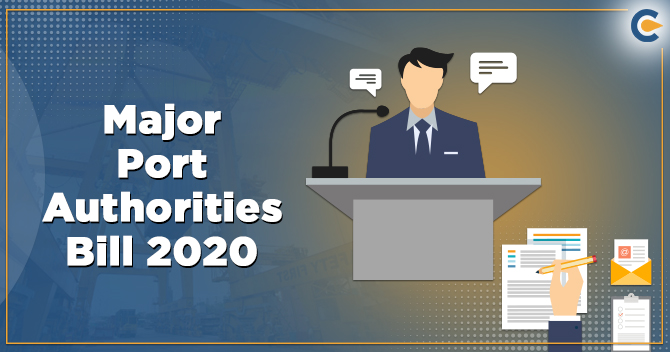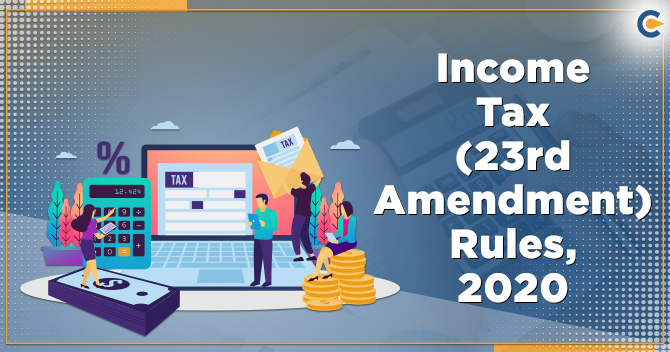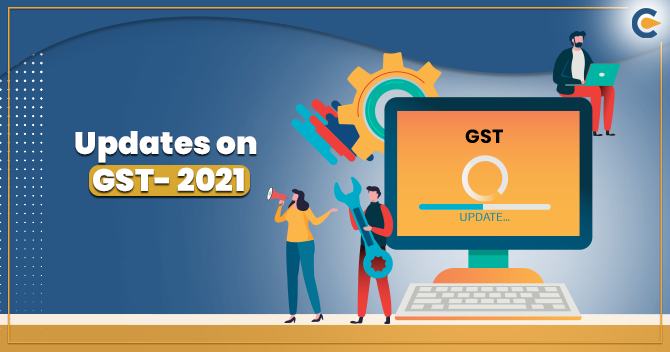The Major Port Authorities Bill, 2020 has been introduced in Lok Sabha by the Minister of State for Shipping, Mr. Mansukh Mandaviya. The Bill seeks to provide for operation, regulation and planning of major ports in India and provide greater autonomy to major ports of Chennai, Cochin, Jawaharlal Nehru Port, Kandla, Kolkata, Mumbai, New Mangalore, Mormugao, Paradip, V.O. Chidambaranar, and Vishakhapatnam. The Bill has repealed the Major Ports Trusts Act, 1963, and strikes providing an opportunity to the Major Ports to offer better services & management with effective new legislation, i.e. the Major Port Authorities Bill, 2020.
Main Highlights of the Bill


Read our article:The Rashtriya Raksha University Bill and the National Forensic Sciences University Bill, 2020
Key features of the Bill: Boards, Rates, Responsibilities, Projects & Penalties
The bill has the following key features, those are as follows:-
Major Port Authorities Board
All major ports has to managed by the respective Board of Port Trusts that have members which are been appointed by a central government. The Bill provides for a creation of the Board of Major Port Authority for each major port. These Boards will further replace the existing Port Trusts.
Composition of Board
The Board must comprise of the Chairperson and the deputy Chairperson, both of them will be appointed by the central government on a recommendation of the selection committee. Further, it shall include 1 member each from the following authority:-
- The respective state governments
- The Ministry of Railways
- The Ministry of Defence
- The Customs Department of Revenue
The Board will include not less than two and not exceeding four independent members. The two members, representing the interests of the employees shall be the members of Board, of a Major Port Authority.
Powers of the Board
The Bill has allowed the Board to use its property, assets and funds as deemed fit for the development of the major port. The Board may also make rules on:
- To declare the availability of port assets for port related services and activities
- To develop infrastructure facilities such as setting up new ports and jetties
- Provide exemption or remission from payment of any charges on any goods or vessels.
Fixing of rates
Presently, the Tariff Authority for Major Ports established under the act of 1963. The fixes scale of rates for assets and services are available at the ports. Under this Bill, the Board or committees appointed by a Board will determine these rates. They may determine rates for:
- The services that will be performed at ports,
- The access and usage of the port assets,
- The different classes of goods and vessels, among others
Such fixation of rates will not be with retrospective effect. It must be consistent with the provisions of a Competition Act, 2002[1], or any other laws in force, subject the definite conditions.
Financial powers of the Board
The Board must seek prior sanction of the central government to raise any loan. Under this Bill, to meet the capital and working expenditure requirements and a Board can raise loans from any:
- Any scheduled bank or any financial institution within India, or
- Any financial institution which is outside India that is compliant with all the laws.
However, for loans above 50% of the capital reserves, a Board will need the prior sanction from a central government.
Corporate Social Responsibility
The Bill provides that a Board may use its funds for providing social benefits. It includes development of infrastructure in areas such as education, housing, health, and skill development. These beneficial attributes could be provided for the Board’s employees, business partners, customers, environment, local communities, and the society at large.
Public Private Partnership (PPP) projects
The Bill defines PPP (Public-Private Partnership) projects as projects taken up through a concession contract by the Board. For the projects, the Board may fix the tariff for the initial bidding purposes. The appointed concessionaire shall free to fix the actual tariffs based on market conditions, and other conditions as has been notified. The revenue share in such projects must be on the basis of the specific concession agreement.
Adjudicatory Board
The Bill provides for constitution of an Adjudicatory Board by the central government. The Board will replace the existing Tariff Authority for Major Ports constituted under the 1963 Act. It must consist of a Presiding Officer and two members, as appointed by a central government. Functions of the Adjudicatory Board must include:
- The various functions being carried out by the Tariff Authority for Major Ports,
- The adjudicating on disputes or claims related to rights and obligations of major ports and PPP concessionaires,
- For reviewing stressed PPP projects.
Penalties
The various penalties for contravening provisions of the Act are:
- The penalties for setting up structures on the harbours without permission which can extend up to Rs 10,000.
- The penalties for evading rates which can extend up to 10 times the rates.
Under the Bill, any person contravening with the provision of the Bill or any of rules or regulations will be punished with a fine of up to 1 Lakh rupees.
Conclusion
It good initiative by the Government towards maximum utilization of the Ports assets in India along with providing a mechanism for operation, regulation, and planning of Major Ports and to vest the administration, control, and also management of such ports upon the Boards of Major Port Authorities.
This is also a step towards Decentralizing decision making and infusing professionalism in a governance of major ports by imparting faster and transparent decision making which benefits the stakeholders and better project execution capability.
Read our article:An Outlook on the Code on Social Security, 2020: Latest
THE-MAJOR-PORT-AUTHORITIES-BILL-2020










